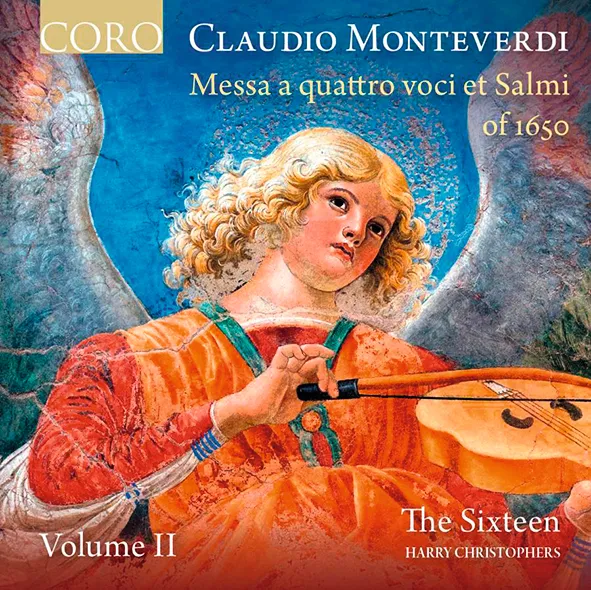
Monteverdi Messa a quattro voci et salmi of 1650, Vol. 2: plus works by Cavalli and Piccinini The Sixteen/Harry Christophers CORO COR16160 67:23 mins
This is the second volume – the first was issued in 2016 – by The Sixteen covering a posthumous collection of Monteverdi’s sacred music published in 1650. It was compiled by the Venetian printer Alessandro Vincenti who was probably aided in his venture by Monteverdi’s successor at St Mark’s, Francesco Cavalli, whose Salve Regina is also included on this disc.
Harry Christophers tells us that the basic approach here is to allow the performers to ‘speak through singing’, and to treat the changes of time and metre ‘intuitively’ rather than with scholarly over-caution. This certainly gives a sense of liveliness to Nisi Dominus II with its freely recited ‘Gloria Patri’, and a fleetness of vocal line to Lauda Jerusalem II. The freedoms are a little too individualised, however, in Laetatus sum where the phrasing and nicely articulated lines of the vocal parts are not mirrored by the imitating instrumental parts. The four-voiced Mass has been recorded before by The Sixteen (in 1978 on Hyperion). The current performance has some touching moments (the melting suspensions at the word ‘doloris’ in the Credo for example), but its Sanctus is rather unshapely and ‘solid’, and the earlier recording is slower and more nuanced. Instruments are used in the current recording to mixed effect: they sometimes muddy the texture in the Mass, but there is sensitive organ playing in Cavalli’s Salve Regina, a rare chance to hear Monteverdi’s only bassoon obbligato in Laetatus sum II and a delightful solo ciaccona from Piccinini’s lute collection of 1623.
Anthony Pryer